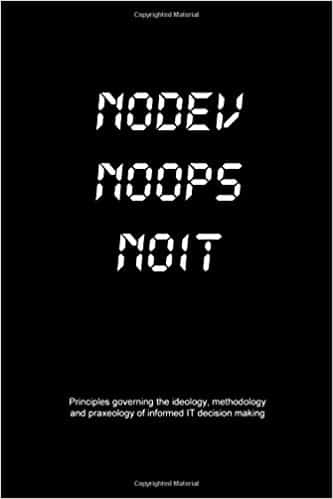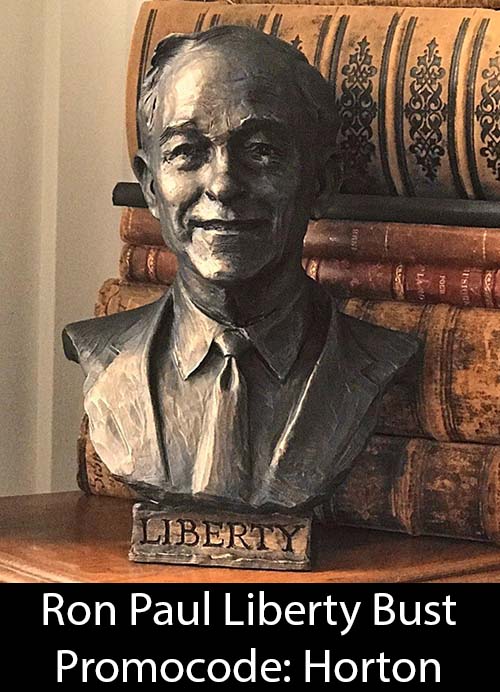Scott talks to Jacob Sullum about the many ways policing in America disproportionately targets black and hispanic communities, both by means of explicitly racist policies, and also those that have racially skewed impacts without necessarily having been conceived that way in the first place. Sullum cites many examples of the disparate treatment of black and brown people that are difficult to dismiss with explanations based on differential crime rates or heavier police presences in certain neighborhoods. He also reviews some of the history of the war on drugs, a policy that has, perhaps above all others, been responsible for the cruel victimization of American minority communities for decades.
Discussed on the show:
- “Racially skewed policing is not a statistical mirage” (Chicago Sun-Times)
- “The Wire (TV Series 2002–2008)” (IMDb)
Jacob Sullum is a senior editor at Reason and a nationally syndicated columnist. Follow him on Twitter @jacobsullum.
This episode of the Scott Horton Show is sponsored by: NoDev NoOps NoIT, by Hussein Badakhchani; The War State, by Mike Swanson; WallStreetWindow.com; Tom Woods’ Liberty Classroom; ExpandDesigns.com/Scott; Listen and Think Audio; TheBumperSticker.com; and LibertyStickers.com.
Donate to the show through Patreon, PayPal, or Bitcoin: 1KGye7S3pk7XXJT6TzrbFephGDbdhYznTa.
The following is an automatically generated transcript.
All right, y’all welcome it’s Scott Horton Show. I am the director of the Libertarian Institute editorial director of antiwar.com, author of the book Fool’s Errand: Time to End the War in Afghanistan. And I’ve recorded more than 5000 interviews going back to 2003, all of which are available at ScottHorton.org. You can also sign up to the podcast feed. The full archive is also available at youtube.com/ScottHortonShow. Alright you guys introducing Jacob solem, senior editor at Reason magazine and writer of great stuff all the time, too much for us to fit. In today’s show. Unfortunately, I have a hard stop in quarter of an hour here. But I want to start at least with this really important racially skewed policing is not a statistical mirage. And this goes to a very important debate about systemic racism in America in American policing. And what that even means exactly and who may or may not actually be collectively guilty of it, and all kinds of stuff. So welcome the show. Thank you for joining us, Jacob. How are you?
Jacob Sullum 1:26
All right, how are you?
Scott Horton 1:27
I’m really good. appreciate you joining us here. So well, do like you do in the piece here. Take us through some of the statistics. Help us understand the landscape and then tell us what it all means you think.
Jacob Sullum 1:41
Okay. Well, I mean, there are very clear racial disparities in law enforcement. I think a lot of conservatives and republicans want to say that you have to look at crime rates. Perhaps you have to look at I don’t know how to say this without sounding racist. You have to look at how black people react when they have encounters with police versus how white and black. I’ve heard that as well. But I think that if you look at the data, these are not adequate explanations very clearly. And I’ll just give you a few examples. When people do have encounters with police, according to a national survey that’s sponsored by the Bureau of Justice Statistics. Black people are much more likely about two and a half times as likely to report that the police officers use or threatened to use force. That’s hard to explain by reference to differential crime rates. When you look at drivers who are stopped by the police for routine traffic violations. One study after another all across the country has found that blacks Drivers are much more likely to be searched than white drivers. And when they’re search, the searches are much less likely or less likely, in any case, to turn up contraband. So that suggests that the amount of evidence that’s required to search black people is less than the amount of evidence that’s required to serve wipers. I don’t see any any good explanation of that other than racial bias either, you know, conscious bias bias or, or unconscious bias. It has to do with which drivers sample at least some police officers doesn’t have to be every police officer deemed suspicious, right? What makes you think this guy might be carrying drugs? And of course you have lots of anecdotal reports. This is less systematic but still very striking. If you talk to any black man in America, it’s likely that he has more than a few stories to tell about being pulled over by blue I’ll just give you a couple of examples that are striking because they come from sources. On the right. You’ve got Tim Scott, who’s the only republican senator who is black. And a few years ago, he gave a speech where he talked about his experience with police stops. And he said he’s been stopped seven times in a single year. Typically, for no clear reason, and he suspected it was because he was driving a nice car in the wrong neighborhood. He’s even been hassled by police on Capitol Hill, who challenged him, you know, asking what what was he doing there even though he has a pin that identifies him as a senator. Now, seven times I don’t know about your experience with cops and seven times in a single year. That’s a lot of traffic stops. You have a similar story from theater Johnson, who wrote a piece for National Review recently. Who said that between his 16th birthday when he retired from the military, which is a 20 year career in the military even stopped about 40 times by police. Now, in my entire life, I’ve been stopped fewer than 10 times I would say, certainly not more than 10 times. So that’s a lot of traffic stops. Now this is anecdotal, obviously. But but but the more people you talk to you more, the more you realize how common experiences. So that doesn’t mean every cop is a bigot. It doesn’t mean that American society is systematically racist. But it does mean that there is a problem here that goes beyond just a few bad apples, which is how the president puts it. It’s not just a matter of a few bad cops who are prone to abuse, but it looks like a substantial portion are driven by bias and some of the decisions they make. There’s also this issue of race neutral policies or policies that have nothing to do with race, but have striking disproportionate impacts on black people. So one example is enforcement of marijuana laws where black people are nearly four times as likely to be arrested for marijuana possession as white people, even though they’re only slightly more likely to be marijuana users. Now, does that mean that they’re being systematically targeted because they’re black people probably not probably has to do with where police are putting the resources. If they’re focusing on high crime, low income neighborhoods, then you’re going to expect a disproportionate number of black people to be arrested for marijuana possession just on that basis. That might also be the case that people with smaller homes are more likely to smoke pot outside in which case they’re more likely to be caught by the police. Right? But that sort of thing is very troubling, I think, even if you don’t believe that it is actually motivated by racial bias. Now, I mean, marijuana prohibition in historically was very clearly motivated by racial bias, but we don’t have to believe that Police nowadays continue to act based on that bias. to note the fact that you have these great troubling disparities.
Scott Horton 7:07
So I think a lot of this goes to the definition of systemic and what exactly it all means here it sort of Well, I think it means a lot of different things to a lot of different people. It seems like one definition could be that if I Dream of Jeannie made every cop black, that the issues would still exist, because they’re built into the system itself rather than even necessarily the attitudes. Have any particular cops, although, obviously that does come into play.
Jacob Sullum 9:04
Yeah, I guess I’m leery of that term systemic racism. Okay. It’s not clear what it means it’s ambiguous. I think it is definitely true that we have a bunch of policies that lead to these outcomes. Those policies are not necessarily motivated by racial bias at all. But just to give you a few examples, police have vast discretion to stop drivers. The Supreme Court has said anytime a police officer thinks someone has committed a traffic offense, no matter how trivial, they have the authority to pull somebody over, even if their motivation is to investigate other matters. Right. So if I think this guy seems suspicious, I think he might be carrying drugs or maybe some seasonable cash. I just noticed that there’s something tail light or he didn’t properly signal a lane change or whatever, you know, basically complete Police can stop you at will, given how many different rules there are about maintenance and operation of cars. So that so the Supreme Court has said they can do that, even if their real intent is to see maybe this guy is carrying drugs or maybe he has some cash vacancies. So, if you create a situation like that, then even if not that many cops are racially biased, whatever cops are racially bias haven’t now have an opportunity to exercise that bias. And what that means is that black people are going to be searched more often on average, and they may may be victimized more often by not just please going through the cars but perhaps seizing whatever cash they have on hand because larger amounts of cash and considered inherently suspicious. And once the cash is seized, you know this has to do with civil asset forfeiture. Once the point for cash is seized a police it’s very complicated and expensive to try to get it. back. So especially if it’s a relatively modest amount of money, people are inclined to just give up, especially if they don’t have other savings that they can use to pay lawyers fees. Right. So that’s a real problem. And that’s not to say, oh, when they created civil civil asset forfeiture, they really wanted to stick it to black people. I don’t think that’s true. But it’s just a consequence of that policy. And you have similar issues when it comes to pedestrian stops. And the Supreme Court has said, police can stop a pedestrian if they have reasonable suspicion that he that he’s engaged in criminal activity, and then they can pack down that person if they if they have reasonable suspicion that he is armed, you know, to protect themselves. So those are the rules, but those rules are routinely flouted in stop and frisk programs across the country, especially if you look at New York City. You see that in nine out of 10 cases, people are being stopped, supposedly based on reasonable suspicion. There’s no arrest. There’s no citation. Even more striking when the people are searched extensively for weapons, right? They first of all, almost never find guns. And that’s that was the main justification for Neeraj Bergen was to get guns off the street, and then they rarely find any other kind of weapons. So that tells you that police very often are making stops and doing pat downs that are not consistent with the Fourth Amendment as the Supreme Court has interpreted it. That’s a very broad problem. And it is not a racial problem, per se, but it has racially disproportionate consequences.
Scott Horton 12:33
Right. You know, I’m thinking of, it’s a common touchstone for these sorts of issues is the TV show the wire, where the cops, one of the lessons from there is the cops refer to all these people who live in the government projects. They’re all shit birds, and everybody else is a taxpayer, where taxpayer is a human being actually worthy of, you know, possibly protection. You know, if they don’t get there had been in but everybody else who’s not a taxpayer they’re, you know, essentially dehumanized and and treated so much worse. And it’s obviously as you’re saying here, it’s not directly related to race, but boy, is it indirectly related to race, right? And that and then the only thing that counts only thing that can protect you is juice. That’s what they call it. If you know somebody who knows somebody with a little political power, and to me, I always thought that this was the most obvious thing that if cops go picking on a random white guy, there’s like a one in 20 chance that his uncle’s a judge or something like that, and it might cost them their ass, but if they go picking on a random black guy, there’s much less chance that he knows somebody who knows somebody or is going to have a lawyer who golf’s with the judge or is going to be able to get out of it in a way or or even. You know, it makes it much less likely that’s gonna blow Back on them, they’re actually gonna get in trouble for enforcing an unjust login somebody like could happen if they go to the nice side of town.
Jacob Sullum 14:08
Yeah, I mean, look, it’s impossible to imagine something like stop and frisk happening in a white affluent neighborhood. Now the police will say we’re going where the crime is right. And that tends to be a poor poorer neighborhoods, which tend to be disproportionately black and Hispanic. And that’s why we that’s why you see these numbers. It’s not because we’re racist, which is fair enough. But the reality of it is that that middle class white people do not have to be worried about being hassled by police for no good reason. Whereas black people do, so that he can say, Well, our motives are pure, which may be true, but the result is not equal treatment under law. for sure.
Scott Horton 14:51
Yeah, and the important point here, I think, well, there’s a lot of different ones, but one of them is that you know what, even if this is not all directly about Race. It sure is understandable why it sure does seem like it to black people. When when did it stop being about race, it was always about race going back all into history. And so now it maybe, obviously is less worse than it was. But it’s not like they were ever free and everything was fine. And now, things are slipping back for some different reason. You know, certainly from their point of view, it makes sense. Also, I think that they would imagine that the average white guy has any kind of political power, certainly, they would probably assume that we would have more power than they do. And so they feel like forsaken that it’s not just the cops. It’s the 65% white population of the country, because they’re not going through it. Don’t give a damn what happens to them if they’re stopped and frisked and thrown up against the wall or their son. You know, and so no wonder they are so upset. I would be too.
Jacob Sullum 16:07
And and if you look at the history of the war on drugs, it was explicitly racist when it started out openly and explicitly racist in terms of which drugs were targeted. They were the drugs used, not our drugs, the drugs, the those people use, right. So Mexicans, blacks, Chinese immigrants, those were the drugs that were targeted. Does that doesn’t mean that that sincere drug warriors nowadays are racist, but you still see these racially disproportionate impacts. And what one really telling example, I think, is the legal distinction under federal law between the smoked and snorted forms of cocaine where even today I mean this the disparity has been reduced, but it still exists. crack cocaine offenses are punished more severely powder cocaine defenses. Now that distinction was supported at the time was established by black politicians. They said, you know, the crack is devastating our neighbors, we need to do something about this. So they supported these heavy penalties. But it turned out what that meant is that federal crack defendants who were overwhelmingly black, we’re getting more severe sentences than powder cocaine offenders who are much more likely to be white or Hispanic. First, actually the same crime. In other words involving the same amount of the active ingredient, right? Same drug, just different forms of it.
Scott Horton 17:37
I’m sorry, we were so out of time here. I’m over. I gotta go. I just got to add to and I know, you know, to the SWAT rates. I mean, imagine the trauma of having a Delta Force type, you know, paramilitary night rate at 4am. How your children would feel if that happened at your house, and it does happen on the poor and the darker side of town in a way That local news doesn’t cover most of the time and even when they don’t shoot somebody kid or dog still going through that is just it’s far more than than this society should tolerate anyone having to put up with it’s just crazy but I’m sorry I gotta go but thank you so much and I’m so sorry I didn’t get to all these other great things that you wrote that I wanted to ask you about but everybody go read Jacobs solemn at reason. calm. Thank you again.
Jacob Sullum 18:25
You’re Welcome.
Scott Horton 18:28
The Scott Horton show anti war radio can be heard on kpfk 90.7 FM in LA, APSradio.com antiwar.com ScottHorton.org and libertarianinstitute.org
Podcast: Play in new window | Download
















